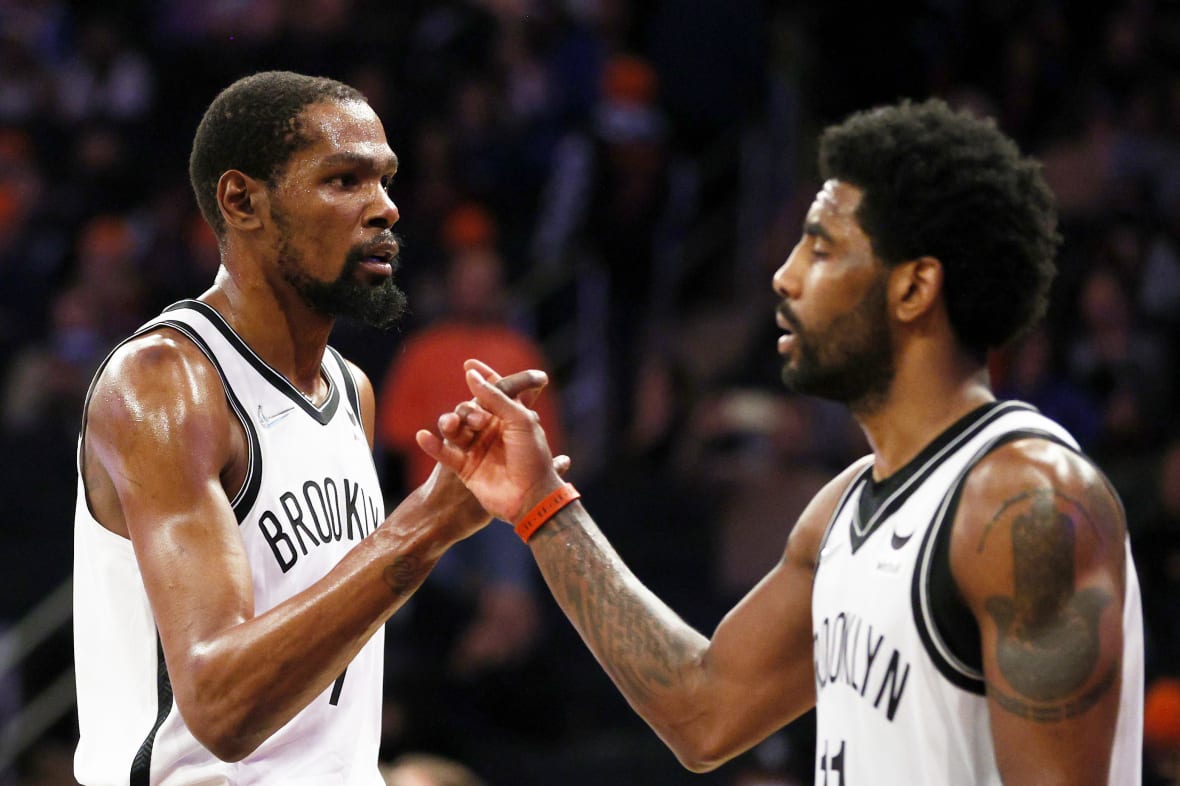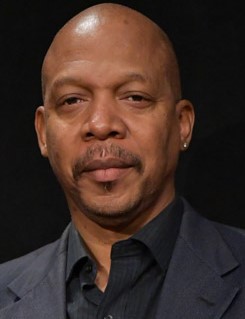How trade requests help empower NBA players
OPINION: High-profile trade requests by Kevin Durant and Kyrie Irving show that player movement isn't only up to team management anymore.

Whenever there’s a dispute between management and workers in our devout capitalistic society, I tend to side with the laborers, whether it’s Starbucks vs. baristas, Amazon vs. drivers, hospitals vs. nurses or pro leagues vs. athletes.
Such calls are easy to make 99 percent of the time, and I lean toward the workforce in close cases. In the NBA, that means supporting the trend of player movement, a hot topic at the All-Star Game with Kevin Durant and Kyrie Irving as prime examples.
The Brooklyn Nets are a smoldering shell of the championship-contending unit we saw when the season began. In accommodating trade requests from Irving and Durant earlier this month, Brooklyn shocked the league and set off a fresh wave of complaints about power dynamics between players and teams. Durant, Irving, and James Harden — the Nets’ three recent All-Stars — all wanted out.
They’re all balling elsewhere as a result.
“I think that’s a bad thing,” NBA commissioner Adam Silver said at his annual All-Star news conference. “I think it’s corrosive to the system. Certainly, fans don’t like it. Even lots of players don’t like it as well because, ultimately, they may be [signing with] a particular team under a belief that that player is still going to be there.”
Before we continue, let’s acknowledge that word usage is a huge part of the problem. The terms “trade request” and “trade demand” are not (necessarily) the same thing. But they’re often used interchangeably by fans and media, generating sympathy for owners.
If you ask to be shipped out, you can still play hard and conduct yourself as a professional. Your request doesn’t have to be followed by decreased productivity and increased negativity. And you don’t have to share your desire publicly; the team can (and will) leak that info if it’s beneficial.
Polite requests are perfectly fine and acceptable. Like the Bible says, sometimes you have not because you ask not.

Demands aren’t as nice. Rather, they’re nasty, confrontational ultimatums that suggest an “or else.” Maybe you become a cancer on the team and a no-show on the court; maybe you hold out or the team sends you home. Those time-honored strategies are the bare-knuckle tactics — slowdowns and strikes and lockouts — available in labor-management fights. Each side chooses its course of action and lives with the consequences.
That’s American business at its best and worst.
Last summer, Durant reportedly demanded that the Nets trade him or fire general manager Sean Marks and then-coach Steve Nash. But depending on the headline, Durant merely requested that owner Joe Tsai make a choice. Tsai supported Marks and Nash, and Durant rescinded whatever it was. Durant played at an MVP level until Irving’s request/demand was honored. Then Durant asked again to be traded and received his request.
Conversely, we know what time it is when players like Irving and Harden make trade “requests.” They might as well be demands because their rejection won’t be pretty. Harden essentially shut down on Houston and then Brooklyn to force his way out; Irving was expected to do likewise if the Nets didn’t send him to Dallas a few days before they sent Durant to Phoenix.
Unlike Silver, Durant thinks the player movement is a good thing.
“It’s bringing more eyes to the league, more people are more excited,” he said at the All-Star practice. “The tweets that I get — the news hits that we got from me being traded, Kyrie being traded — it just brings more attention to the league and that’s really what rakes the money in when you get more attention. So, I think it’s great for the league, to be honest.”
Irving is more concerned with individual players than the collective NBA.
“Why doesn’t anyone have the ability to ask for trades? That’s my question,” he said. “When did it become terrible to make great business decisions for yourself and your happiness and peace of mind? Not every employer you’re going to get along with, so if you have the chance to go somewhere else and you’re doing it legally, I don’t think there’s a problem with it.”
For the most part, he’s right.
A team can trade or cut players at any time, regardless of the players’ wishes and signed contracts. Fans understand the deal, realizing that their favorites can be dealt whenever the front office believes a move makes sense. We’re all accustomed to teams being in control, but some folks struggle with the concept of players enjoying a share.
Silver understands that a certain amount of movement is good and accepts the fact it’s not exclusively the teams’ call anymore. “You never want it to get to the point where a player’s literally demanding that he goes somewhere else,” he said, adding that the NBA hopes to “find the right balance.”
There’s rarely any balance between management and the workforce in American business.
Give it up for ballers if they’re able to create some.

Deron Snyder, from Brooklyn, is an award-winning columnist who lives near D.C. and pledged Alpha at HU-You Know! He’s reaching high, lying low, moving on, pushing off, keeping up, and throwing down. Got it? Get more at blackdoorventures.com/deron.
TheGrio is FREE on your TV via Apple TV, Amazon Fire, Roku, and Android TV. Please download theGrio mobile apps today!



